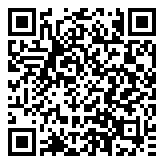Panel: AI Inventors and Patent Law
Artificial Intelligence is rapidly becoming a part of our everyday lives and is the driving force behind a growing number of new technologies. But who gets the patent when an automated system creates its own invention? Current US law requires that an inventor must be a human, even though an increasing amount of innovation is actually done by machines. Should these machines be eligible to qualify as “inventors” under patent law? There are billions of dollars underlying this question, which is currently being considered by the U.S. patent office, as well as by counterparts around the world.
The event will feature two panelists to discuss this question, both of whom are outspoken advocates for reforming America’s patent system: Ryan Abbott, MD, JD, MTOM, PhD, is Professor of Law and Health Sciences at the University of Surrey School of Law and Adjunct Assistant Professor of Medicine at the David Geffen School of Medicine at UCLA. He is the author of “The Reasonable Robot: Artificial Intelligence and the Law” published in 2020 by Cambridge University Press. He has published widely on issues associated with life sciences and intellectual property in leading legal, medical, and scientific books and journals, and his research has been featured prominently in the popular press including in The Times, the New York Times, the Financial Times, and other media outlets involving time. Professor Abbott has worked as an expert for, among others, the United Kingdom Parliament, the European Commission, the World Health Organization, and the World Intellectual Property Organization. He is a licensed physician and patent attorney in the United States, and a solicitor advocate in England and Wales. Managing Intellectual Property magazine named him as one of the fifty most influential people in intellectual property in 2019.
Alex Moss is the Executive Director of the Public Interest Patent Law Institute, a nonprofit dedicated to ensuring the patent system promotes technological innovation and access for the public’s benefit. Prior to that, she was the Mark Cuban Chair to Eliminate Stupid Patents at the Electronic Frontier Foundation. She worked in private practice as a patent litigator at Sullivan & Cromwell and Durie Tangri. After graduating from Stanford Law School, she served as a judicial clerk to the Honorable Timothy B. Dyk of the U.S. Court of Appeals for the Federal Circuit. She has argued cases in state, federal district, and appellate courts. In 2019, she spoke at the National Academy of Sciences and testified before the Senate Judiciary Committee on the state of patent-eligibility law in the U.S.
John Villasenor is a professor of electrical engineering, law, public policy, and management at UCLA and a nonresident senior fellow at the Brookings Institution. Professor Villasenor’s work addresses the intersection of technology, policy, law, and business, with a focus on topics including digital communications, artificial intelligence, cybersecurity, and privacy. He is also a member of the Council on Foreign Relations and an affiliate at the Center for International Security and Cooperation (CISAC) at Stanford. He has published in the Atlantic, Billboard, the Chronicle of Higher Education, Fast Company, Forbes, the Los Angeles Times, the New York Times, Scientific American, Slate, the Washington Post, and many academic journals.

